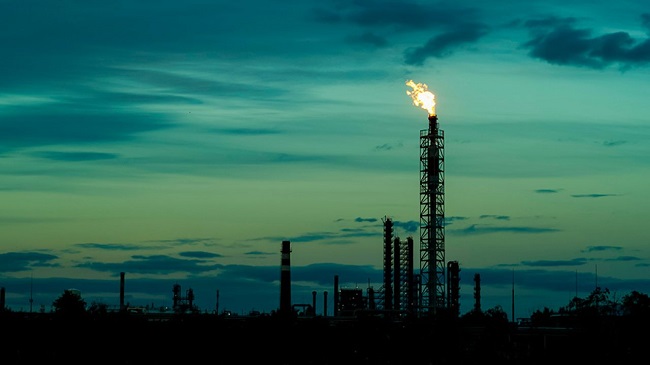The worldwide number of methane hot spots has soared 32 percent so far this year despite the economic slowdown, according to satellite imagery analysed by a private data firm.

Comparing the first eight months of 2019 to the same period in 2020, the Paris-based firm, Kayrros, said methane leaks from oil and gas industry hot spots climbed even higher in Algeria, Russia and Turkmenistan, growing by more than 40 percent. The largest contributors to rising methane releases were the United States, Russia, Algeria, Turkmenistan, Iran and Iraq, Kayrros said.
Methane, the main ingredient of natural gas, is a greenhouse gas more than 80 times as potent as carbon dioxide over a 20-year period.
Antoine Rostand, president of Kayrros, said the largest leak the firm was able to detect was in Iraq, releasing 400 tons an hour. He said the plume stretched 200 miles from northern Iraq to Saudi Arabia. In the United States, the largest leak was from a pipeline emitting 150 tons of methane an hour, the greenhouse gas equivalent of more than 10 coal-fired power plants “at full steam,” Rostand said in an interview.
The report on the jump in emissions comes shortly after the Trump administration’s easing of U.S. methane restrictions in August.
Rostand said some of the leaks were the result of pipeline maintenance, which shuts down pipelines temporarily and forces natural gas flaring. But some leaks are the result of long-term faulty maintenance, such as one in Algeria that has been releasing methane since 2017.
The increases in methane emissions also come despite promises by world and industry leaders in the 2015 Paris climate agreement to lower releases of methane.
“Such increases in methane emissions are concerning and in stark contradiction to the direction set in the Paris agreement,” Rostand said. “Despite much talk of climate action by energy industry stakeholders, global methane emissions continue to increase steeply.”
Kayrros said that while the coronavirus pandemic led to lower demand and production of natural gas, some companies allowed lax operating standards to cut costs.
The European Union on Wednesday, October 14, 2020 said it would aim to clamp down on methane emissions from the oil and gas industry with legislation across the bloc. It is considering a ban on all routine venting and flaring of methane by 2025. And it is preparing to tax oil and gas imports based on their methane footprints, a challenge for big importers such as Germany, France, Italy, Ukraine and Poland.
Methane accounts for a quarter of global warming emissions from human activities, and the oil and gas sector offers the fastest, cheapest option for reducing methane leaks, according to the Environmental Defense Fund and the International Energy Agency.
The IEA said the oil and gas industry can reduce methane emissions by 75 percent using technology available today. The agency said more than half of this is achievable at no net cost to the industry.
The Clean Air Task Force estimates that by 2030, strong E.U. methane standards for domestic and imported gas could reduce emissions by more than 5 million tons a year, comparable to shutting down about 120 coal-fired power plants.
Experts have argued that methane leaks put operators at a competitive disadvantage.
“Producers whose operating practices and regulatory regimes yield the lowest emission rates will come out on top,” Antoine Halff, chief analyst at Kayrros, and Andrew Gould, former chief executive of oil field services giant Schlumberger, have written.
“It is clearly time to reduce these emissions,” Rostand said Wednesday. “They are easy to fix. We have the technology to fix them.” Otherwise, he said, “gas that leaks methane is as bad as coal.”
By Steven Mufson, The Washington Post
